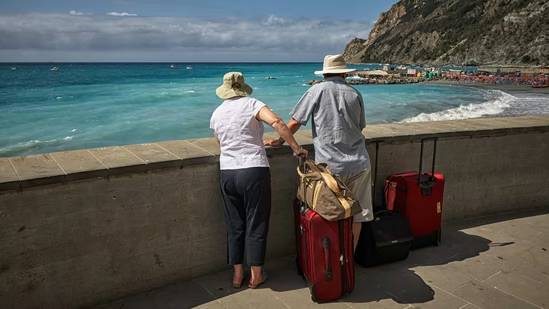


Find out if health insurance is mandatory, why it’s essential, and key tips for seniors and families when choosing the right policy.
International travel can be an enriching experience for people of all ages. For Indian senior citizens, it often means visiting children settled overseas, ticking destinations off their bucket list, or even seeking specialised medical treatments in another country. While the excitement of planning a trip is understandable, it is equally important to consider the question: Is health insurance mandatory for Indian senior citizens travelling abroad?
The short answer is: It depends on your destination country. While India does not have any law requiring outbound travellers to carry health or travel insurance, many foreign nations enforce such requirements as part of their visa policy. In this article, we explore whether buying health insurance is mandatory, why it is highly recommended, and what senior citizens and their families should consider when purchasing a policy.
Several popular destinations have made it compulsory for visitors to carry valid travel health insurance. For example:
Therefore, if a senior citizen is planning to visit any of these regions, purchasing a qualifying travel health insurance policy is mandatory. Without it, your visa application will not be processed or approved.
Even if your destination does not formally require insurance, going without cover can be financially risky. Medical costs abroad can be significantly higher than in India. A simple outpatient consultation may cost hundreds of dollars, while hospitalisation can run into thousands or even lakhs of rupees.
Senior citizens are more likely to need medical care due to pre-existing conditions, age-related health issues, or sudden emergencies. The following are some reasons why health insurance for senior citizens travelling abroad is considered essential:
For these reasons, even when not mandatory, parents health insurance or senior citizen-specific travel policies are highly recommended for every international trip.
Most regular health insurance plans purchased in India do not cover hospitalisation or treatment outside the country. However, some comprehensive policies may offer limited international cover, usually for emergencies. It is vital to check with your insurer if your parents health insurance or any group policy includes overseas protection, and whether there are caps or co-pay clauses. In most cases, a dedicated travel health insurance plan is necessary to ensure adequate coverage.
Selecting a policy suitable for older travellers requires careful evaluation. Here are important aspects to consider:
To buy travel health insurance for senior citizens, you will generally need:
Some insurers may also request recent medical reports, depending on the traveller’s age and declared health history.
Travelling without adequate health insurance can lead to significant stress and financial loss. If your destination requires mandatory insurance, you risk being denied boarding at the airport or entry at immigration. Even where it is optional, a sudden hospitalisation can quickly drain your savings or leave you dependent on relatives to cover the bills.
For senior citizens living on retirement funds, this situation can be particularly overwhelming. Many Indian families have faced the burden of repatriation costs and long hospital stays simply because they underestimated the importance of insurance.
While health insurance for senior citizens travelling abroad may not be legally required in every country, it is always a wise decision to buy it. The peace of mind that comes from knowing medical emergencies will be handled without financial strain is priceless. Before booking tickets or applying for visas, research the destination’s entry requirements and choose a plan that offers comprehensive protection tailored to seniors.
If you are planning travel for your parents or any elderly family members, consider investing in a dedicated travel health insurance policy rather than relying solely on existing coverage. In today’s uncertain times, it can be the difference between a pleasant trip and a financial nightmare. Always read the terms carefully, compare multiple insurers, and select a reputable provider that understands the unique needs of senior travellers.
